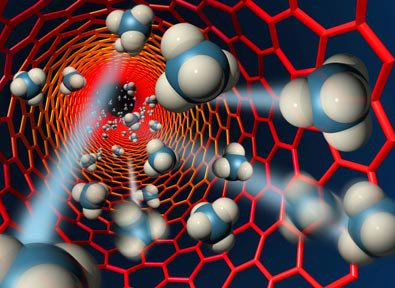The increasing use of nanotechnology for manufacturing cars, as well as the generalization of this use in the near future, is making the European Union (EU) look for some type of regulations to govern this industry.
With the sights set to protect both the citizens and the environment from possibly harmful nanoparticles, the first major step to be undertaken is to define what a nanoparticle is. That task fell into the hands of the Joint Research Centre of the European Commission. According to the Centre, a nanoparticle should be considered any solid object measuring between 1 and 100 nanometers.
After defining the nanoparticles, the EU will have to develop standards for the use of such technologies. Being so small, the particles have the ability, if certain conditions are met, to pass through human skin and enter the bloodstream. The task is gargantuan though, given the fact that the particles and their behavior are not yet fully understood.
According to Wards Auto, there are currently several uses for nanoparticles, including the manufacturing of tires, paints and car parts.
In the US, there are no immediate plans to standardize the use of nanoparticles.
"The technology is new enough that we are not yet looking at tires or car bumpers that have nano elements and which have reached the end of their lives,” Ally Tinkle, senior science advisor for the National Institute of Environmental Health Sciences told Wards Auto.
“But we understand the immediacy of these questions and the need to protect public health and the environment.”
With the sights set to protect both the citizens and the environment from possibly harmful nanoparticles, the first major step to be undertaken is to define what a nanoparticle is. That task fell into the hands of the Joint Research Centre of the European Commission. According to the Centre, a nanoparticle should be considered any solid object measuring between 1 and 100 nanometers.
After defining the nanoparticles, the EU will have to develop standards for the use of such technologies. Being so small, the particles have the ability, if certain conditions are met, to pass through human skin and enter the bloodstream. The task is gargantuan though, given the fact that the particles and their behavior are not yet fully understood.
According to Wards Auto, there are currently several uses for nanoparticles, including the manufacturing of tires, paints and car parts.
In the US, there are no immediate plans to standardize the use of nanoparticles.
"The technology is new enough that we are not yet looking at tires or car bumpers that have nano elements and which have reached the end of their lives,” Ally Tinkle, senior science advisor for the National Institute of Environmental Health Sciences told Wards Auto.
“But we understand the immediacy of these questions and the need to protect public health and the environment.”

